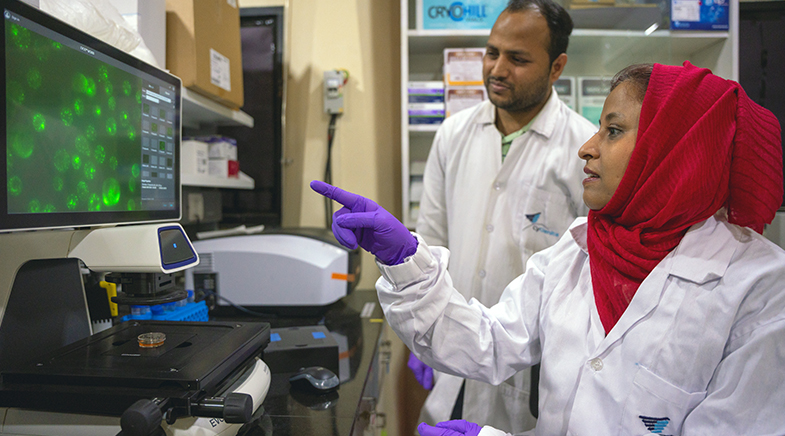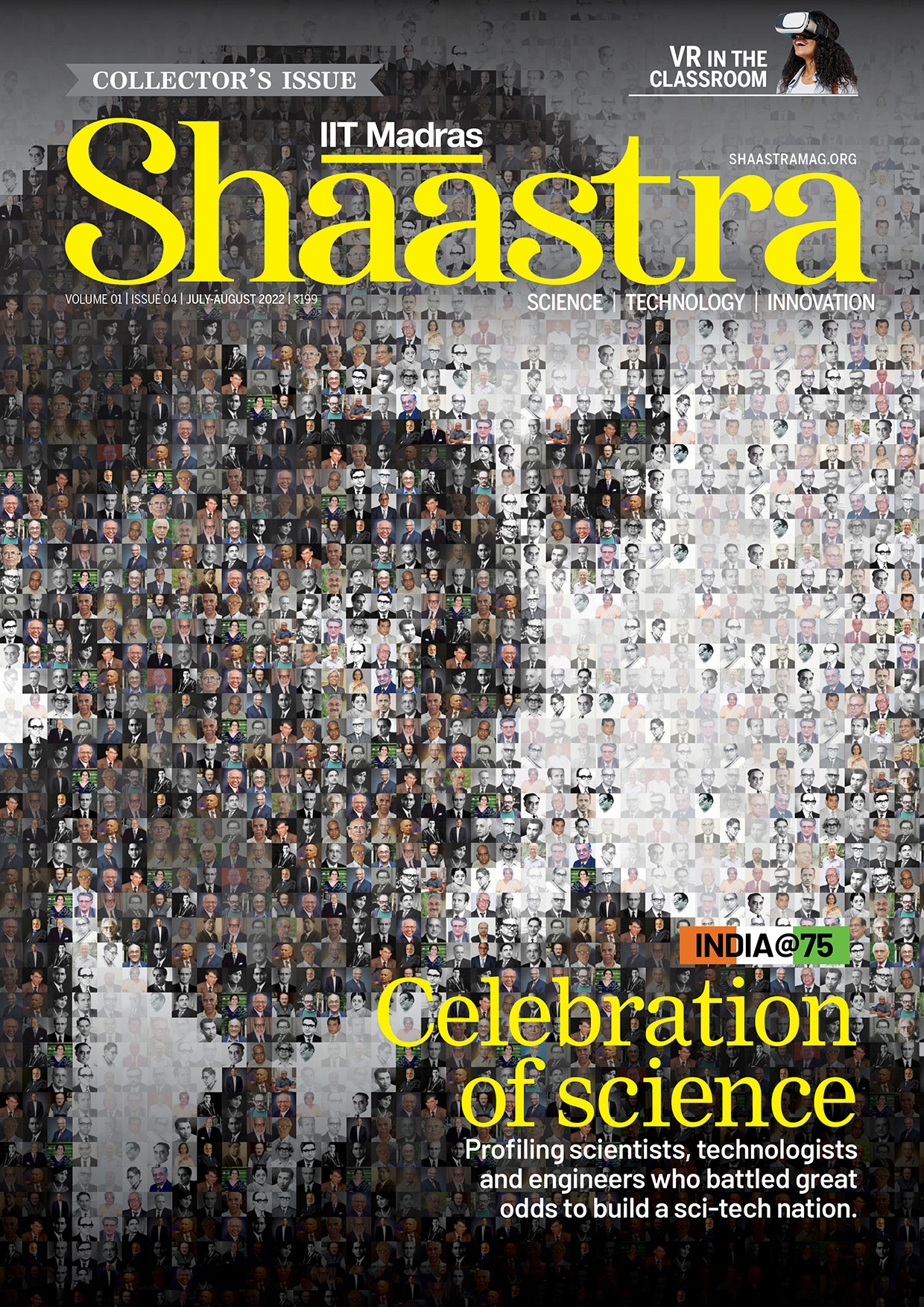Closer to a cure
-
- from Shaastra :: vol 02 issue 01 :: Jan - Feb 2023

The potential of cell and gene therapeutics to provide lasting solutions to incurable diseases is attracting a growing number of Indian scientists and companies.
Nusrat Sanghamitra watched as time-lapse imaging from a high-resolution confocal microscope showed a protein — resembling a screw — puncture a hole in the membrane of a living cell to enter it. The cell membrane, she saw, went on to reseal itself. For Sanghamitra, this was early proof of the protein's ability to enter a cell without damaging it.
The scientist had engineered the protein (named GEENIE) in her laboratory, on the verdant campus of Pune incubator Venture Center, to deliver chemotherapy drugs more efficiently. Bypassing a cellular process that allows in only some of the drug being administered, this vehicle enables the entire dose to reach the intracellular target, thus potentially lowering the effective dosage and related side effects, she claims.
But she soon realised that it could serve other uses. Her start-up CyGenica is now refining the delivery platform to transport gene-editing cargo.
Gene editing, an experimental therapy, involves inserting, replacing, or deleting genetic sequences that are at the root of incurable or life-threatening diseases. The safe delivery of the gene-editing cargo is a vital aspect of successful gene editing.
Many of the thousands of rare diseases, Sanghamitra observes, have a genetic origin. "If it works, it (gene editing) can be a boon for patients," she says. "It is a hot area and a need as well."
The start-up is one of a small but growing band of Indian scientists and companies strongly attracted to the emerging field of cell and gene therapeutics involving manipulating human cells and genes to make potentially one-shot interventions that could offer lasting solutions to intractable diseases.
While CyGenica addresses the delivery of therapeutics, many others are making therapeutics. Bengaluru-based Immuneel Therapeutics and Mumbai-based ImmunoACT have put Chimeric Antigen Receptor T cell therapy (CAR-T), a type of cell and gene therapy for advanced blood cancers known as B cell malignancies, into human trials.
Also in Bengaluru, Aurigene Oncology, a subsidiary of Hyderabad-based Dr. Reddy's, plans to start CAR-T human trials on a type of advanced blood cancer in early 2023. Murali Ramachandra, CEO of the cancer drug research and development company that focuses mainly on small molecules or chemistry-based drugs, says CAR-T has a "remarkable" response rate. In some global clinical trials for a type of blood cancer, 90-100% of patients who had exhausted all available options responded to CAR-T.
"We need to work on cutting-edge technologies that give the highest possible benefit to patients," he says.
India is a relatively late entrant to the field. The U.S. and China have a few thousand cell and gene therapies in development; India has fewer than 15, according to drug development database Pharmaprojects. The "fundamental thing" is that "there is no competition (in India)," points out Dhananjay Bakhle, a physician heading medical research at a large Indian drug-maker. Therapies approved in the West are unavailable in India and cost crores of rupees outside the country.
PAST ISSUES - Free to Read


Have a
story idea?
Tell us.
Do you have a recent research paper or an idea for a science/technology-themed article that you'd like to tell us about?
GET IN TOUCH














